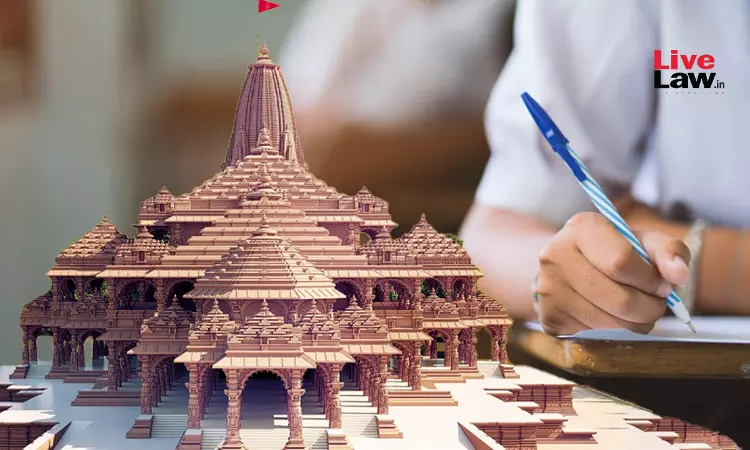- Home
- /
- High Courts
- /
- Rajasthan High Court
- /
- Rajasthan High Court Rejects Law...
Rajasthan High Court Rejects Law Student's Plea Alleging Exam Question On 'Ram Janmbhoomi' Judgment Hurt Religious Sentiments
Nupur Agrawal
10 July 2025 12:02 PM IST
Stating that "fair criticism of a verdict is permissible", the Rajasthan High Court dismissed the petition moved by a law student challenging some passages of his University exam paper that commented on Supreme Court's judgment in the Ayodhya Ram Janmabhoomi – Babari Mosque case.The bench of Justice Anoop Kumar Dhand observed,“An academic or personal opinion expressed by a Student or...
Stating that "fair criticism of a verdict is permissible", the Rajasthan High Court dismissed the petition moved by a law student challenging some passages of his University exam paper that commented on Supreme Court's judgment in the Ayodhya Ram Janmabhoomi – Babari Mosque case.
The bench of Justice Anoop Kumar Dhand observed,
“An academic or personal opinion expressed by a Student or Teacher or Scholar on a legal judgment, even one involving sensitive issues, cannot be equated with any religion attack. If a citizen writes an essay or critique on a verdict of the Court, reflecting personal interpretation, the same must be viewed as a positive and constructive exercise in legal reasoning and critical analysis, so long as it does not amount to contempt of Court.”
The student had contended that the comments were so inflammatory that might outrage religious sentiments, violating Section 295A IPC.
The High Court however opined that challenging certain portion of a question paper solely on the ground that it hurts religious sentiments under Section 295A IPC is not legally sustainable, unless it is established that the content was included with deliberate and malicious intent to outrage religious feelings.
"The academic freedom and the autonomy of educational institutions should not be curtailed and compromised merely on the basis that subjective language has alleged to have hurt sentiments, unless there is a clear breach of law or the language used therein is contemptuous, offensive or defamatory."
In the case at hand it noted except the petitioner, no other student who attempted the question paper had raised any objection to the content of the question. It added,
"The Right to Freedom of Speech and Expression guaranteed under Article 19(1)(a) of the Constitution of India, is a cornerstone of democracy, allowing the citizens to express their views and opinions freely...Whatever question was asked in the examination paper, was merely an expression of view of the Examiner, but in any case, the same has not hurt the sentiments of any other students except the petitioner. Law must be governed by reasons and not by sentiments."
Citation: 2025 LiveLaw (Raj) 234
Title: Anuj Kumar Kumawat v State of Rajasthan & Ors.



